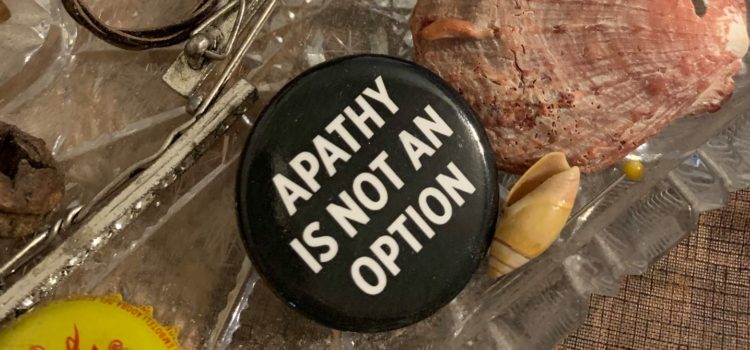Originally published as an op-ed in the Post Register.
“Those that fail to learn from history are doomed to repeat it.”
This version of the quote, attributed to Winston Churchill, has been on my mind recently. When looking at some of what’s taking place around us, it’s not hard to pick out patterns.
Consider:
- We have a vocal, extremist minority pushing an agenda that legislates away the rights of others.
- A small, marginalized group has been identified as a prime target. Calls for their “eradication” have been made at major events like CPAC.
- Books are being targeted for their material. Many of the targeted books aren’t actually dangerous to children or anyone.
- The main justification for taking away rights, banning books (and the ideas in them) and targeting the marginalized is to “protect children.” (We know what the numbers and the studies say about who is more likely to be a threat to children. And it isn’t drag queens or members of the LGBTQIA+ community.)
History may not be repeating itself exactly, but there are certainly some rhyming themes. We’re currently embroiled in a culture war that involves the attempt to legislate people out of their rights—and potentially existence in public life.
On top of that, we have extremists showing up to school board and library board meetings, waving guns and acting the very opposite of how they expect the rest of us to behave. They tell us we’re supposed to maintain civility and decorum. While at the same time, they’re so afraid of what’s in a book that they have to use the threat of violence to try and enforce their ideas on the rest of us.
We have plenty of challenges right here in Idaho. Challenges that have to do with our healthcare system, infrastructure and growing income and wealth inequality. According to the Living Wage Calculator from the Massachusetts Institute of Technology, in a household with two adults and two children, each adult needs to work a full-time job earning $23.21 per hour to keep up with living requirements.
There’s no place in the United States where an adult earning the federal minimum wage can afford a modest two-bedroom apartment.
Researchers at the Federal Reserve Bank of Kansas finally released findings that many of us who cover this stuff for a living have been saying for more than year: Our current rate of inflation—the higher prices we’ve been seeing—has been largely driven by companies raising their prices more than necessary to take advantage of (and blame) market forces as a way to pad their own pockets.
These are real issues we should be addressing. Not scapegoating the most marginalized among us.
Many of us wonder if we—had we lived then—would have had the courage to stand up for others who were persecuted. If we would have hidden them from atrocities. If we would have put ourselves on the line to protect the rights of others.
Look at how you’re reacting now. You already know.
Miranda Marquit, Master of Business Administration, is a nationally recognized financial expert, writer, speaker and podcaster. She is the chair of the Bonneville County Democratic Central Committee.







